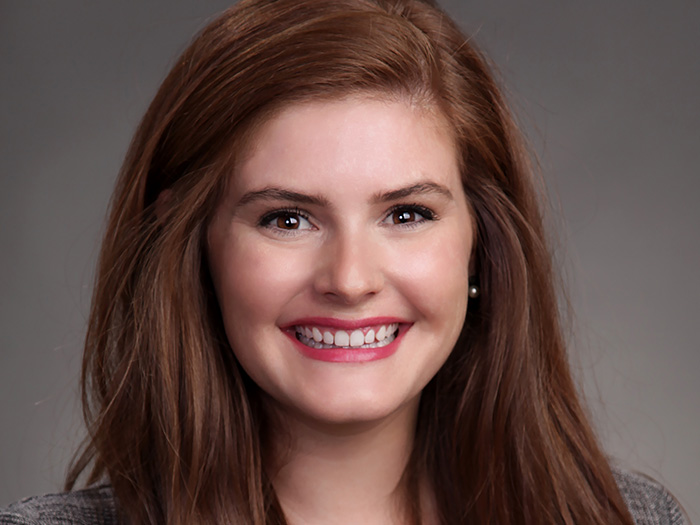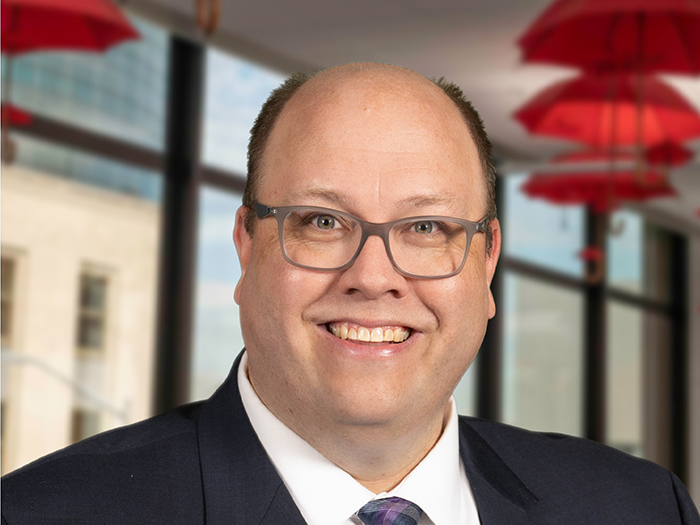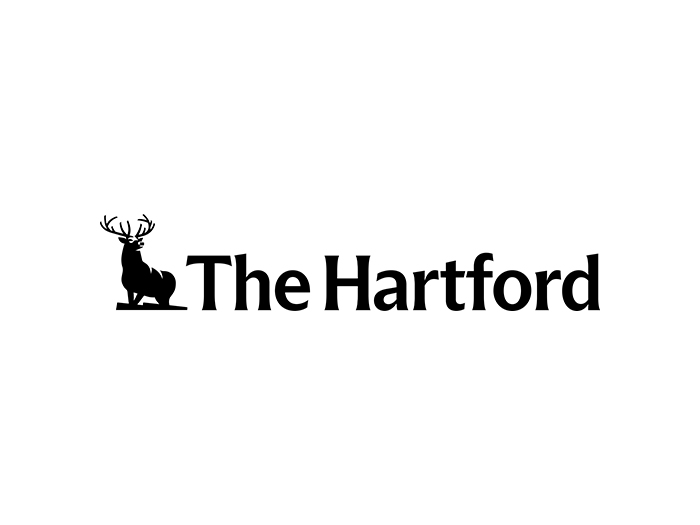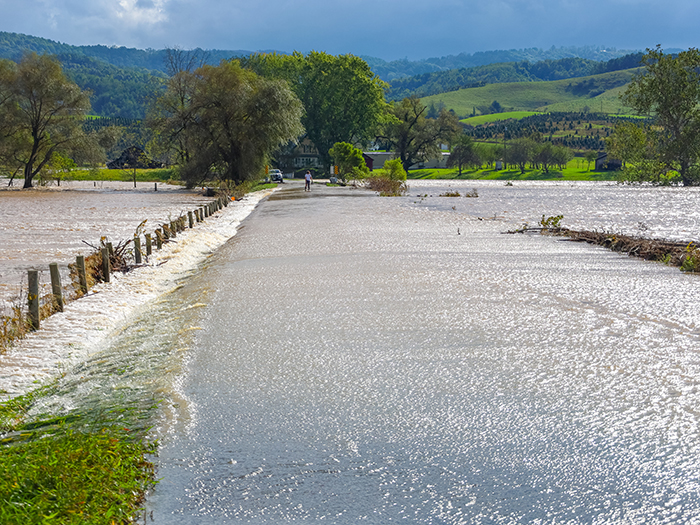Rising Star Allie Eans Shares Her Journey to Brokering and Why Mentorship Is Crucial in This Industry


Come see the Stars! As part of our ongoing coverage of the best brokers in the commercial insurance space, Risk & Insurance®, with the sponsorship of Philadelphia Insurance, is expanding its coverage of the Rising Stars — those brokers who represent the next wave of insurance brokering talent.
Look for these expanded profiles on the Risk & Insurance website and in your social media feeds now and throughout 2023.
Here, we spoke with Allie Eans, assistant vice president and account management lead from Alliant, and a 2022 Renewable Energy Power Broker and Rising Star.
Risk & Insurance: To start, let’s discuss your brokering journey and how you ascended to your current position today.
Allie Eans: During my junior year of college, I had an opportunity to intern for an independent broker and their downstream energy team for a summer in London. That’s when it clicked for me, and I realized this specific industry combined several interests I had, and I could turn those into a career path.
I had a great experience there and went back to London after I graduated from school to work for a different independent broker, with their downstream and midstream teams. I had a positive experience, and that connected me with Alliant, which is where I’ve been for the last eight years.
I started in our Houston office within their energy and marine division. When Alliant made the decision to further invest in the expansion of the downstream and power portion of our energy portfolio, I joined our group in Boston, which is where I’ve been the last seven years and have seen the majority of my career growth.
I’m always tackling something new every day, which is attractive to me in a career. There’s always something to be learned, specifically with power and renewable energy as the industry is fluid and always changing. Aligning myself with a group of colleagues and clients whom are at the forefront of this change has helped my career immensely.
R&I: What pressing issues are top of mind for you in the renewable energy sector?
AE: Specifically, within my division at Alliant, all we do is power, meaning we typically don’t place any other sectors of business. This gives us a unique perspective in terms of understanding and anticipating what obstacles our clients are facing.
One pressing issue, specifically within renewables, is catastrophic perils. These include the more traditional perils, like earthquake, flood and named windstorm. However, within the last five years, secondary CAT perils have had significant impact on the renewable industry and have become almost a daily talking point. These are CAT perils that haven’t always historically been top of mind, like hail, wildfire, tornadoes, etc.
A lot of renewable technologies like solar farms, wind farms, or BESS projects have a different risk profile and exposure when it comes to CAT than we’ve seen in the past from the traditional thermal power sector. With that change in risk profile, unfortunately, claims can occur.
This increase in claims activity is usually followed by either more expensive or restrictive coverage. Educating our clients on how to mitigate risk is very important, but also a key part of why our team is so successful is that we excel at a technical broke; explaining, to the underwriting community, why certain risks are more favorable from a loss control perspective and ultimately how our clients are trying to reduce their exposure to a claim.
Additionally, a lot of our clients are involved in project and lender financing. Alliant is a great asset in assisting in those negotiations as we understand the importance to of educating those that don’t deal with insurance daily on the present conditions of the market. The renewable insurance market is not the same as it was 10 or 15 years ago, or even 5 years ago, so it is imperative that our clients are able to rely on us to speak intelligently about the current state of the market and to be able to articulate why some risks that weren’t highlighted as a main concerns historically are a major concern in our current environment.
We also have been very successful in offering unique and creative solutions to these lender concerns, some even out of the realm of what we would consider traditional insurance.
R&I: You mentioned how the renewable sector now is very different than how it was 10 or 15 years ago, what are those changes that you’ve seen, and what changes are you kind of expecting to see in the foreseeable future?
AE: In any industry, when you do a 10- or 15-year lookback, you will see change. As I mentioned before, terms and coverages available today are often reactions to claims of the past.
More recently, across the industry, and certainly within the renewable industry, there was a rapid hardening of the market in 2020. This was partly due to the pandemic, but also due to a significant increase in claims to the market, for instance, hail damage in Texas.
For solar projects, that’s been a massive issue for the insurance community. We saw an extreme and exponentially rapid contraction of coverage, as a direct result of these claims. That’s tapered off a little bit, as we’ve learned more about those claims, but it certainly has not reverted to similar market conditions as before.
Presently, there’s still a push for change in rating, limits and terms and conditions. At Alliant, we believe in a technical broke, providing factual and technical engineering information about why a risk may be better or worse. That’s been a really big factor in mitigating that contraction in coverage and increased rates for our clients, and we continue to work with our staff of in-house engineers to come up with creative solutions to combat these market changes.
The technology is also ever-changing. We have a client that owns a battery storage which just reached completion of construction recently and they’re already doing upgrades to the fire suppression system to make it the safest and most up to date it can be. Our team and our engineers were an integral part of that decision process.
Keeping up with technology changes is a big undertaking, but it’s important and something we’re trying to be at the forefront of.
R&I: Who has been either your biggest or your most influential mentor throughout your career?
AE: Mentorship has always foundational for me. Wherever I work, I want it to be somewhere where people are interested in my development and investing in my knowledge. I think it partly has to do with company culture, but it’s also all the individual people.
I’m very fortunate in that I’ve had a great experience with mentorship at Alliant. Sheila Lindsey, who’s based out of our Fort Worth office, she took me under her wing when I joined Alliant. My initial role in Houston was more in general energy and marine, and I was looking for an opportunity to become even more specialized.
A year after I joined Alliant, Rob Bothwell and Brenna Melvin joined our company to really cement that power aspect of our energy group. Sheila introduced me to them and kicked that off for me and. I’ll always be grateful to her for that.
Since joining the Power team, I can’t say enough good things about Rob and Brenna. They’ve both supported me so much in terms of my education and providing me with unique opportunities to expand my skillset so early in my career. Specifically, Brenna is one of the most impressive people I’ve met to date from a professional standpoint.
Her attention to detail and the level of knowledge that she has from a technical and insurance perspective is something to aspire to. She is an exemplary partner to our clients, which they vocalize often, and consistently demonstrates how to be a strong, successful business leader in our industry. Her investment of both her time and knowledge into me has given me the confidence to reach where I am today and to grow and expand my career in the future.
Her role as a mentor to me has been essential to my success and something I hope to emulate in the future.
R&I: What advice would you give to a young professional who’s just starting out in their insurance career?
AE: I think the most important thing is to align yourself with people that are willing to invest in you. Additionally — asking questions, taking initiative, being a self-starter, and learning technologies are all also so important and can be what sets you apart. Ultimately, our industry is a people-industry as well.
Networking and meeting new people is not only fun but also can be beneficial and you never know where those relationships can take you. &










